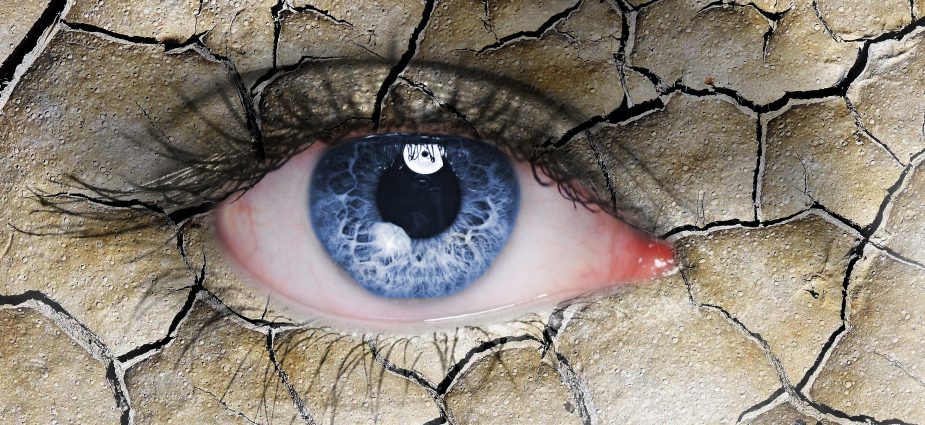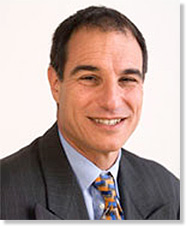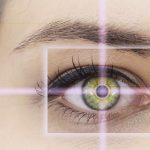Dry Eye After LASIK
Medically Reviewed by: Dr. Mark R. Mandel

Post-LASIK Dry Eye – Common and Treatable
If you have developed dry eye after undergoing LASIK, you are not alone. Dry eye can occur after LASIK. However, if detected before LASIK and fully treated, it is very uncommon to develop following the LASIK procedure. Post-LASIK dry eye symptoms are usually mild, and they typically don’t last long. However, in some cases dry eye can persist for months or years.
The reason so many people experience dry eye following LASIK is that the creation of the corneal flaps affects the nerves that regulate the production of tears. Detection before LASIK is the key to avoiding severe dry eye. By undergoing tests with your eye doctor, you can avoid this burdensome condition.
What Causes Dry Eye?
Dry eye can be caused by genetics, age, gender, medications and other factors.
Eye surgery sometimes reduces the sensitivity of the corneal nerves, which can prevent your eye from recognizing the need for lubrication and cause you to produce less tears. The corneal flap created during LASIK makes this more likely.

Dry eye isn’t always a result of LASIK or another eye surgery. Many people experience dry eye well before their LASIK procedure. Contact lens use, for example, is a very common cause of dry eye.
(Check out our article on dry eye syndrome for more info.)
How is it Treated?
Dry eye can lead to discomfort and less-than-satisfactory results. Consequently, it is critical that your eye surgeon helps you prevent it before it even develops.
The following can help with tear production both before and after LASIK surgery:
- Prescription eye drops
- Non-preserved artificial tear drops
- Supplements containing flaxseed oil and/or fish oil
- Anti-inflammatories such as corticosteroids
- Staying well-hydrated (drink lots of water)
- Small silicone plugs in the tear drains of the eyelids
Screening for Dry Eye
Because dry eye can affect the outcome of your LASIK procedure, your surgeon must conduct screening tests to assess your tear production and distribution, as well as your tear film, prior to the procedure. These tests will help your surgeon determine if you are likely to develop dry eye after your surgery.
Risk Factors
Risk factors for dry eye following LASIK include the following:
Severe myopia. If you have severe myopia (nearsightedness), you may be at increased risk of developing dry eye after LASIK, because your cornea will need to be treated at a deeper level.
Aging. This is a significant factor, especially for women who have been through menopause.
Certain medications. If you take antihistamines for your allergies, or if you take blood pressure medication or antidepressants, you may be at increased risk of developing dry eye after LASIK.
Dry weather or environment. Air conditioning and indoor heating cause many people to develop dry eye, as do dry climates such as the desert.
To learn more about causes, treatments, risk factors and other factors pertaining to dry eye, schedule an appointment with you eye doctor today.
Updated: March 8, 2019
About the Reviewer
 Dr. Mark R. Mandel is a board-certified ophthalmologist who has performed more than 90,000 surgical procedures, including 60,000 LASIK surgeries. He is a cornea sub-specialist and LASIK surgeon well-trusted for his experience, expertise, surgical precision and integrity. Dr. Mandel has garnered a reputation as “the surgeon’s surgeon” because hundreds of eye doctors and other physicians have selected him to perform LASIK on themselves and their family members.
Dr. Mark R. Mandel is a board-certified ophthalmologist who has performed more than 90,000 surgical procedures, including 60,000 LASIK surgeries. He is a cornea sub-specialist and LASIK surgeon well-trusted for his experience, expertise, surgical precision and integrity. Dr. Mandel has garnered a reputation as “the surgeon’s surgeon” because hundreds of eye doctors and other physicians have selected him to perform LASIK on themselves and their family members.
Dr. Mandel graduated with honors from Oxford University in England, where he earned both his Bachelor of Science and master’s degrees, and earned his medical degree from the University of California, Los Angeles School of Medicine. He has advanced training in corneal transplant surgery and external eye conditions, and currently teaches at the University of California, Berkeley, the University of California, San Francisco, and the California Pacific Medical Center in San Francisco, in addition to leading the team at Optima Ophthalmic Medical Associates, Inc., where he performs LASIK, PRK, Epi-LASIK, refractive lens replacement procedures and more.




